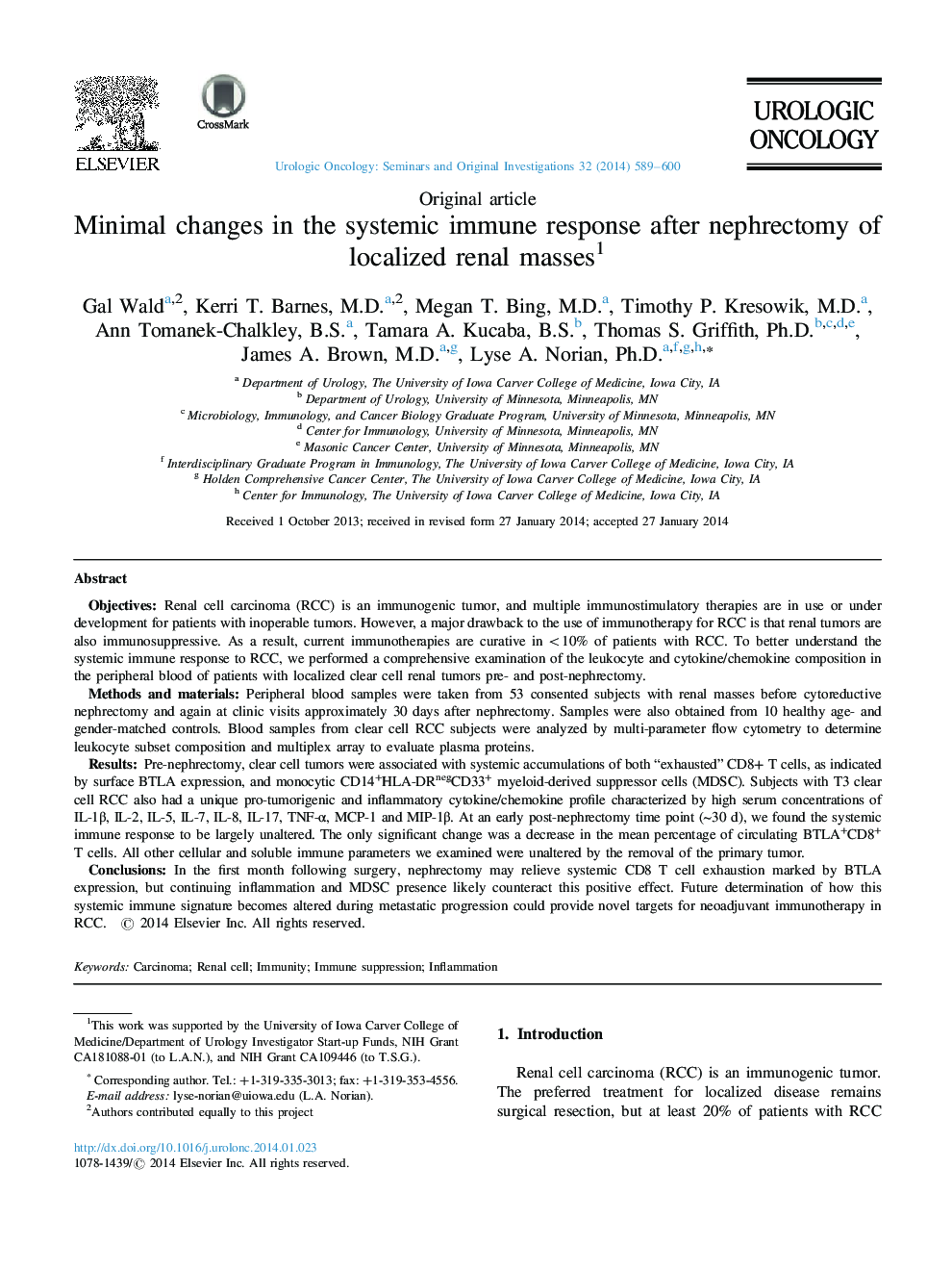| کد مقاله | کد نشریه | سال انتشار | مقاله انگلیسی | نسخه تمام متن |
|---|---|---|---|---|
| 6194329 | 1259360 | 2014 | 12 صفحه PDF | دانلود رایگان |
ObjectivesRenal cell carcinoma (RCC) is an immunogenic tumor, and multiple immunostimulatory therapies are in use or under development for patients with inoperable tumors. However, a major drawback to the use of immunotherapy for RCC is that renal tumors are also immunosuppressive. As a result, current immunotherapies are curative in<10% of patients with RCC. To better understand the systemic immune response to RCC, we performed a comprehensive examination of the leukocyte and cytokine/chemokine composition in the peripheral blood of patients with localized clear cell renal tumors pre- and post-nephrectomy.Methods and materialsPeripheral blood samples were taken from 53 consented subjects with renal masses before cytoreductive nephrectomy and again at clinic visits approximately 30 days after nephrectomy. Samples were also obtained from 10 healthy age- and gender-matched controls. Blood samples from clear cell RCC subjects were analyzed by multi-parameter flow cytometry to determine leukocyte subset composition and multiplex array to evaluate plasma proteins.ResultsPre-nephrectomy, clear cell tumors were associated with systemic accumulations of both “exhausted” CD8+ T cells, as indicated by surface BTLA expression, and monocytic CD14+HLA-DRnegCD33+ myeloid-derived suppressor cells (MDSC). Subjects with T3 clear cell RCC also had a unique pro-tumorigenic and inflammatory cytokine/chemokine profile characterized by high serum concentrations of IL-1β, IL-2, IL-5, IL-7, IL-8, IL-17, TNF-α, MCP-1 and MIP-1β. At an early post-nephrectomy time point (~30 d), we found the systemic immune response to be largely unaltered. The only significant change was a decrease in the mean percentage of circulating BTLA+CD8+ T cells. All other cellular and soluble immune parameters we examined were unaltered by the removal of the primary tumor.ConclusionsIn the first month following surgery, nephrectomy may relieve systemic CD8 T cell exhaustion marked by BTLA expression, but continuing inflammation and MDSC presence likely counteract this positive effect. Future determination of how this systemic immune signature becomes altered during metastatic progression could provide novel targets for neoadjuvant immunotherapy in RCC.
Journal: Urologic Oncology: Seminars and Original Investigations - Volume 32, Issue 5, July 2014, Pages 589-600
